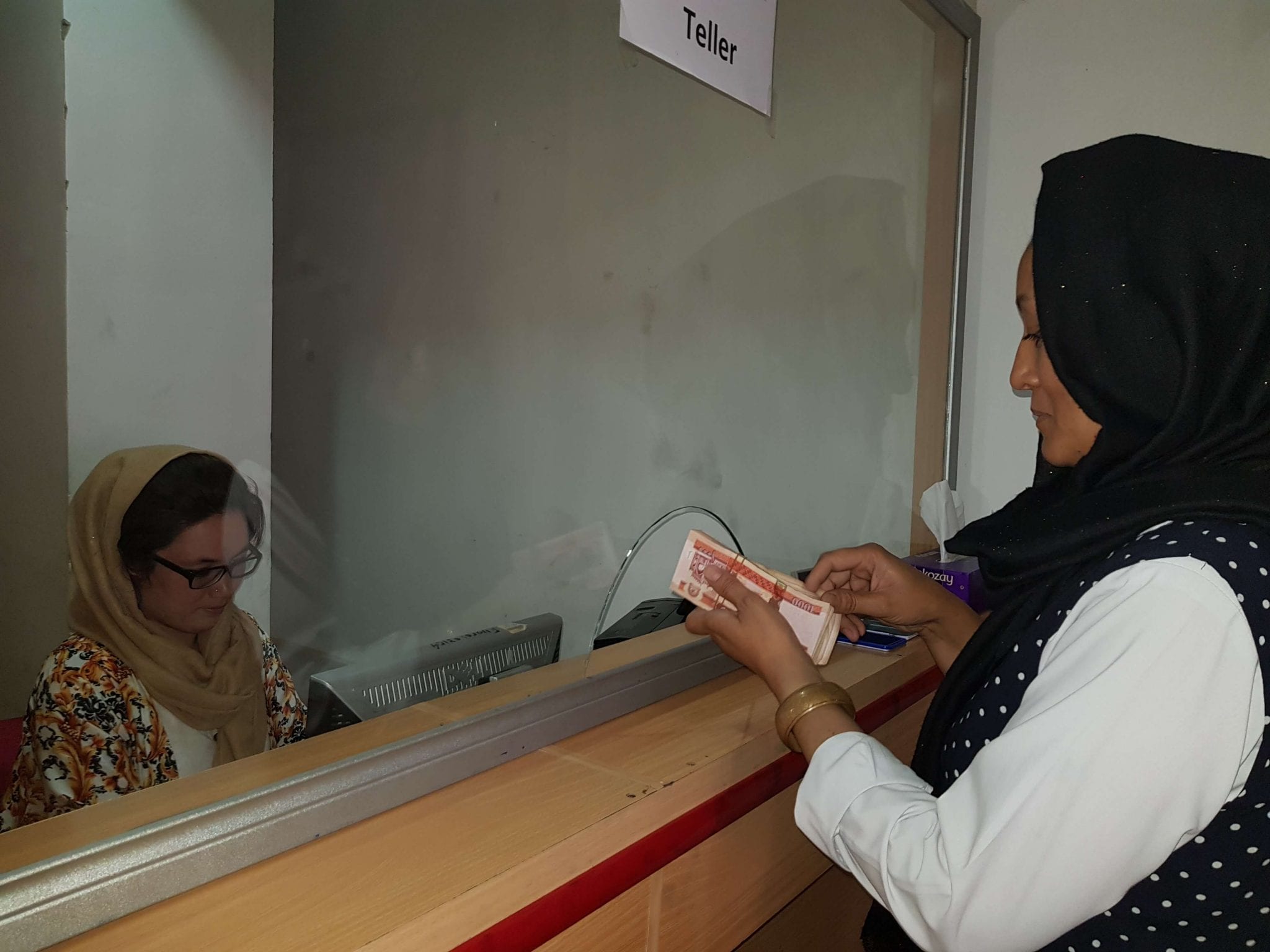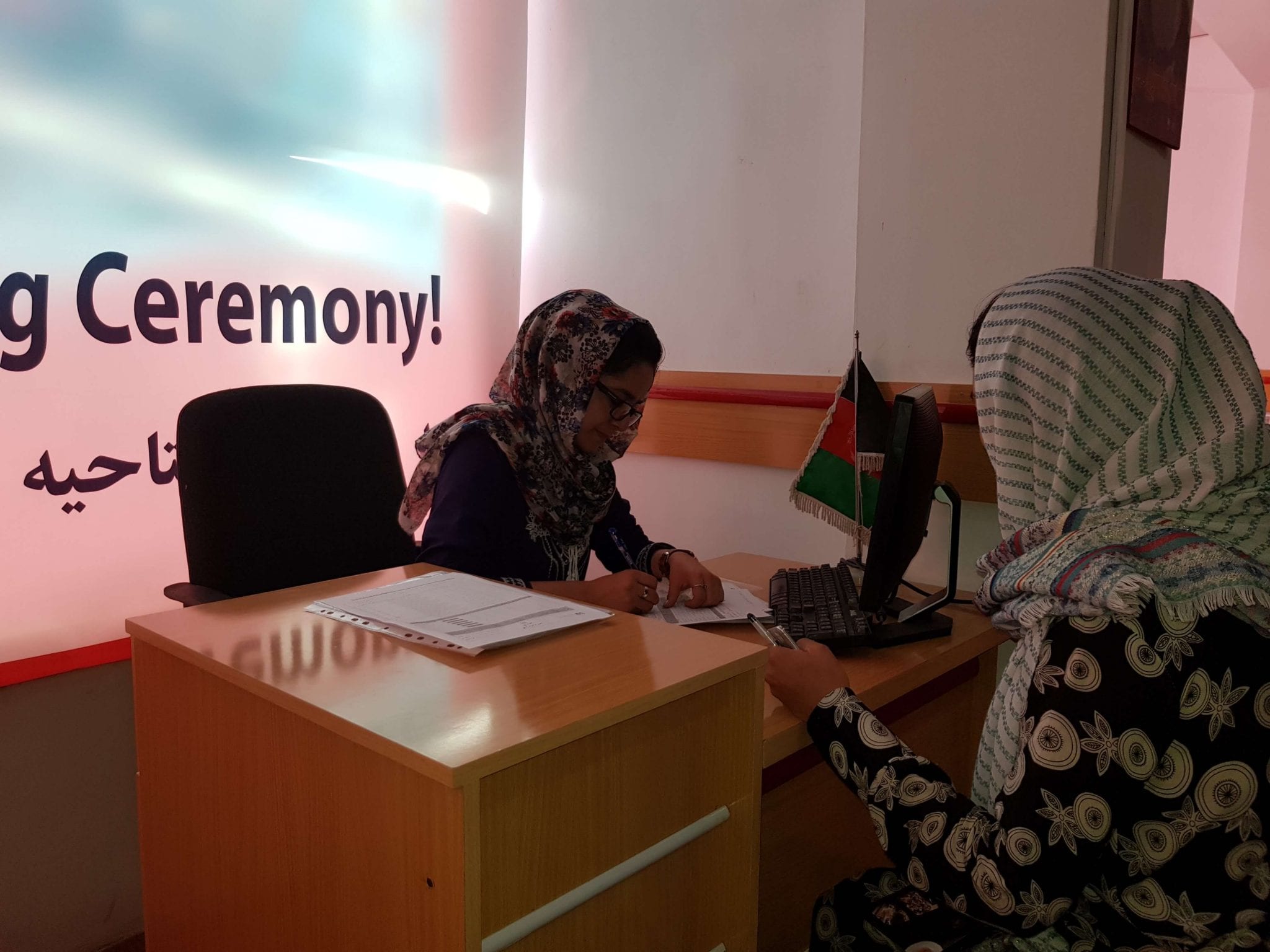Business Loans for Women Headline Gender-Sensitive Finance Strategy
While more people have access to financial services than ever before, the gender gap in financial inclusion continues to be a problem area. FINCA Impact Finance is addressing that gap by offering gender-sensitive financial products and services, including business loans for women entrepreneurs.
The World Bank’s Findex 2017 indicates progress has been made toward financial inclusion. Worldwide, the number of people with a bank account has increased by 515 million since 2014. Sixty-nine percent of adults are now formally banked, a seven percent increase from 2014.
But despite overall progress, the gender gap in financial access persists. Men are nine percent more likely to have a bank account than are women—a number that has not budged since 2011.
In some regions, the gender gap in financial inclusion has actually widened. In the Middle East & North Africa, the gender gap increased from 14 percent in 2011 to 17 percent in 2017, according to Findex data. In Sub-Saharan Africa, the gap grew from five percent to 17 percent over the same period.
The Importance of Gender-Sensitive Finance
Efforts to expand financial inclusion need to reach women in a more intentional way. Recognizing that, FINCA Impact Finance has developed and is offering gender-sensitive financial products and services in addition to delivery methods tailored to the specific needs of women.
“Gender-sensitive finance is about meeting women on their terms”, said Zar Wardak, FINCA Impact Finance’s regional director for the Middle East & South Asia. “In order to close the gender gap in financial inclusion, we need to recognize that women and men have different financial needs and need to be reached using different channels.”

Developing specialized business loans for women entrepreneurs is one way to improve the situation. In many regions, women have been shut out of the economy by lack of access to finance. Special loan products tailored to women borrowers address that historical inequality, providing the capital and financial education needed to start or expand a small business.
In Kosovo, many women still lack access to responsible finance. Only 44 percent of adult women in the country have a bank account, compared to 61 percent of men. There is also a shortage of women entrepreneurs—only 11 percent of registered businesses are owned by women, and most of these businesses employ fewer than 10 people.
“Kosovo is a clear example of a market in need of financial products specifically geared toward women entrepreneurs”, said Teuta Kotorri-Krasniqi, chief operations officer for FINCA Kosovo, one of FINCA Impact Finance’s 20 subsidiaries. “We are addressing the gender gap by offering gender-sensitive financial products, including business loans for women entrepreneurs.”
Business Loans for Women Entrepreneurs in Kosovo
This February, FINCA Kosovo launched its Loan for Women Entrepreneurs in Business and Agribusiness, an innovative financial product designed to expand women’s financial access and economic empowerment. The loan, which can be disbursed in amounts ranging from €250 to €25,000, includes favorable repayment terms including a 0% disbursement fee and interest rates lower than that of other FINCA Kosovo loan products.
The Loan for Women Entrepreneurs is designed to allow women entrepreneurs in Kosovo, most of whom are engaged in the micro-business and agriculture sectors, to grow their operations into small or medium-sized businesses—larger, more stable enterprises able to employ other members of the community.
In addition to repayment terms tailored to their specific financial circumstances, women borrowers are eligible to receive free training in areas such as tailoring, business development and marketing, with training modules designed with input from the clients themselves. In addition to receiving crucial capital, FINCA Kosovo’s women clients are able to develop the skills they need to expand their businesses.
Since the product launched in February, FINCA Kosovo has reached 608 new women entrepreneurs, expanding its total customer base by more than 16%. This type of gender-sensitive loan product is sustainable and scalable—women tend to be more responsible borrowers in comparison to men, so extending them credit is good for society and for business.
Women-Only Bank Branches in Afghanistan
Gender-sensitive methods for delivering financial products and services can also help close the gender gap. Providing financial products and services in ways that women understand, feel comfortable with and are socially acceptable, such as bank branches specially-designed to serve women customers, enable women to participate in the economy.
Afghanistan is a country where only seven percent of adult women have a bank account. It’s also the setting of some of FINCA Impact Finance’s ambitious efforts toward gender-equitable financial inclusion. Nearly 60 percent of clients at the company’s Afghan subsidiary are women. While the organization strives to reach both men and women with responsible finance, FINCA Afghanistan is devoted to helping close the gender gap.
This January, FINCA Afghanistan opened a women-only bank branch in Kabul. Employing an all-female staff and serving exclusively female clientele, the branch offers a full range of responsible financial services, including small enterprise and agriculture loans as well as Sharia-compliant loans. Clients at the branch also have access to the Women Murabah Group Loan, a FINCA Afghanistan loan product targeted toward micro-businesses owned and operated by women.

The new branch already serves more than 800 active clients and has extended loans to women entrepreneurs worth a total of approximately $376,000. In addition to providing business loans for women entrepreneurs in Kabul, the women-only branch is intended to change attitudes about finance, providing a meeting space for women entrepreneurs to share experience, knowledge and opportunity—and hopefully inspire more women to engage in entrepreneurship.
“Extending credit to women is both socially impactful and profitable”, says Wardak. “But while it’s good for our business, we want to contribute to a broader social transformation in Afghanistan. There are a lot of talented women entrepreneurs in Afghanistan who just need a little help getting started.”